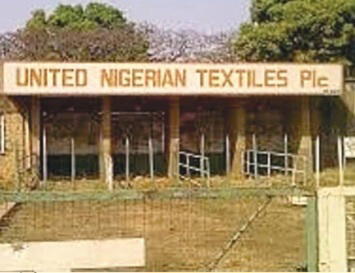Kaduna residents optimistic, cautious over FG’s moves to revive dead textile industry

By Ibrahim Hassan-Wuyo
Kaduna was for decades, the heartbeat of
Nigeria’s textile industry. It was a thriving industrial city powered by industrial machines, bustling factories, and a workforce that once stood in the tens of thousands.
The city’s Kakuri area, in particular, was a vibrant industrial hub where workers ran shifts, operated round the clock, and the textiles, according to analysts, were among the state’s biggest employers after government.
Sadly, the story has taken a bad turn in recent years. The once-flourishing textile factories were grounded by series of challenges, ranging from the dumping of substandard foreign products, especially from China, to poor power supply, weak policy enforcement, and rising production costs. The result was mass unemployment, deepening poverty, and a surge in crime as thousands of skilled and unskilled workers were left stranded with no alternatives.
When one visits the industrial areas, the sight of abandoned factory buildings now overrun by weeds, rodents, and in some cases used as criminal hideouts, became symbolic of a fallen giant in Nigeria’s industrial history.
However, hope appears to be on the horizon once again, as barely a week after the Secretary to the Government of the Federation, Senator George Akume, assured stakeholders in Kaduna that President Bola Tinubu’s administration is committed to reviving dormant industries across the North, a Federal Government delegation led by the Minister of State for Industry, Trade and Investment, Senator John Owan Enoh, commenced an inspection tour of key textile facilities in the state.
The tour is part of Agenda 7 under the President’s 8-point economic agenda, which emphasises industrial revitalisation, job creation, and inclusive growth.
During his visit, Senator Enoh toured the facilities of United Nigeria Textiles Limited, UNTL, and Chellco Industries, two iconic names in Kaduna’s textile history. He stressed that the revival of UNTL is critical to restoring investor confidence and jump-starting a broader industrial transformation in the country.
The symbolic importance of this move wasn’t lost on stakeholders. Speaking during the minister’s visit, His Royal Highness, Sanusi Lamido Sanusi, the Emir of Kano and Chairman of UNTL, lamented the 2022 shutdown of the factory due to economic headwinds, despite its legacy of employing over 10,000 people at its peak.
Sanusi warned that without urgent government intervention, the factory’s collapse could become permanent. He highlighted persistent challenges facing the textile industry: inconsistent electricity supply, unchecked smuggling of textiles, weak enforcement of intellectual property rights, and lack of institutional support for sourcing local materials, especially for military and paramilitary uniforms.
At the UNTL, the Minister emphasized that textiles revival would restore investors’ confidence in Nigeria’s textile heritage and catalyse broader industrial growth.
The minister assured stakeholders of the Federal Government’s unwavering support, noting that these efforts are part of a broader strategy—Agenda 7 of President Tinubu’s 8-Point Agenda—which prioritizes job creation, inclusive economic growth, and sustainable industrial development.
Enoh explained that the ministry had convened stakeholders’ engagements to identify and resolve bottlenecks, promote public-private partnerships, work with development partners, strengthen policy frameworks, and support local manufacturing with a focus on improving export competitiveness.
At Chellco Industries, he praised the resilience of the textile company, commending the management for keeping the factory running since 1980 under trying economic conditions, as it continues to provide jobs for over 290 workers.
A Kaduna resident, Samuel Yusuf, welcome the development, saying the move gives them hope for job creation and economic revival.
He recalled when the textile industry was the city’s lifeline. He however, urged government to match words with concrete actions to ensure that the factories get back to life and begin to provide jobs for the teeming unemployed on the streets.
Another Kaduna resident, Elder Oibe Sunday, described the new attempt by government to revive the industry as a step in the right direction, but urged the administration to avoid the mistakes of the past that have kept the industry on its knees till date.
“Good move in the right direction. However, let the previous errors be avoided. Textiles used to be the major employers of workers in the ’70s and ’80s,” Sunday recalled.
An expert, Muhammad Aliyu, however warns that revival won’t be automatic or easy. The industry’s collapse wasn’t due to a single factor and its return requires coordinated policy action across multiple fronts.
Aliyu said: “Addressing energy costs, securing the borders against textile smuggling, financing industrial infrastructure, and reforming procurement laws to favour local production are all essential.
“The Federal Government has promised a new policy framework to drive the process, with support from development agencies and private sector stakeholders. However, sustained political will and practical implementation will be the true test,” he added.
As President Tinubu’s administration pushes forward with its industrial recovery agenda, stakeholders will be watching closely, not just for promises, but for progress.
The post Kaduna residents optimistic, cautious over FG’s moves to revive dead textile industry appeared first on Vanguard News.







